Tweet not found
The embedded tweet could not be found…

Contributor
Tesla has officially celebrated the opening of its Berlin ‘gigafactory’ in Germany by delivering the first 30 Model Y SUVs built at the plant.
Tesla CEO Elon Musk attended the opening of the new €5 billion ($A7.38 billion) production plant on Tuesday and broke out some dance moves as the first vehicles rolled up to the handover area.
“This is a great day for the factory,” said Mr Musk who described the opening of the new production plant as, “another step in the direction of a sustainable future”, according toAutomotive News.
The embedded tweet could not be found…
The first Model Y models delivered to customers were Performance models, costing €63,990 ($A94,445) in Germany and offering a claimed electric range of 514km under the stricter WLTP cycle.
Orders placed now for German-built Model Ys could start to be fulfilled from April 2022 according to Tesla.
The US electric vehicle (EV) startup previously said it has hired more than 3000 workers for the plant.
“Tesla will make sure [the Berlin gigafactory] is a gemstone for the area, for Germany, for Europe, and the world,” said Tesla CEO Elon Musk as part of a speech uploaded to YouTube.
This new Berlin gigafactory will also help to take the pressure off Tesla’s Chinese and North American production plants.
Until now, Tesla shipped its vehicles to Europe from its Shanghai factory which drove up logistics costs.
“Makes a huge difference to capital efficiency to localise production within a continent,” said Mr Musk in a tweet.
At full capacity, the Berlin gigafactory will reportedly produce 500,000 cars annually, as well as 50 gigawatt hours (GWh) of battery power.
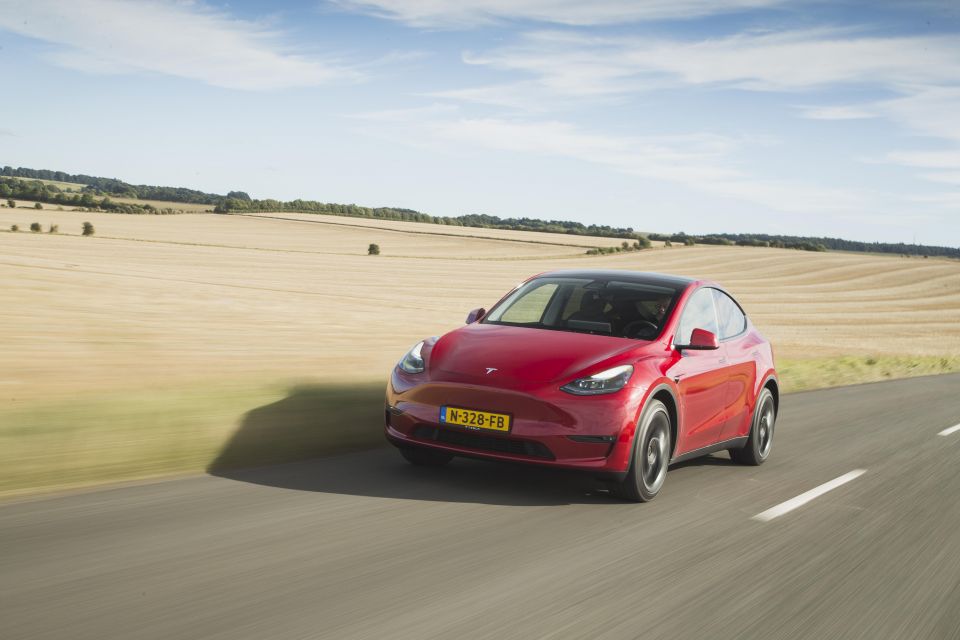
Multinational financial services company J.P. Morgan forecasts Tesla’s Berlin gigafactory will produce around 54,000 cars in 2022, 280,000 in 2023, and 500,000 by 2025.
Tesla’s main rival in Europe, Volkswagen Group, for now holds 25 per cent market share in Europe’s EV market, compared to Tesla’s 13 per cent, but the US EV startup could soon catch up and overtake.
Volkswagen’s new €2 billion ($A2.95 billion) EV plant for the Project Trinity flagship isn’t set to begin production until 2026, and the first of its six new European battery plants is due to open in 2023.
The German automaker had previously held off its five-year Wolfsburg 2030 investment plan in an attempt to counter Tesla.

German Chancellor Olaf Scholz also attended the plant opening, calling it a sign of progress and the future of the car industry.
Mr Musk had originally hoped to begin production at the Berlin gigafactory in 2021, but the COVID pandemic, supply chain and environmental opposition delayed this.
Indeed, Automotive News reports members of environmental groups were present outside the plant with banners, pots and pans to protest its opening.
These groups have criticised Tesla for its level of water use and for its felling of trees to build the facility.
Tesla received the final go-ahead from German authorities on March 4 to commence production, provided it met several issues including water use and air pollution control.
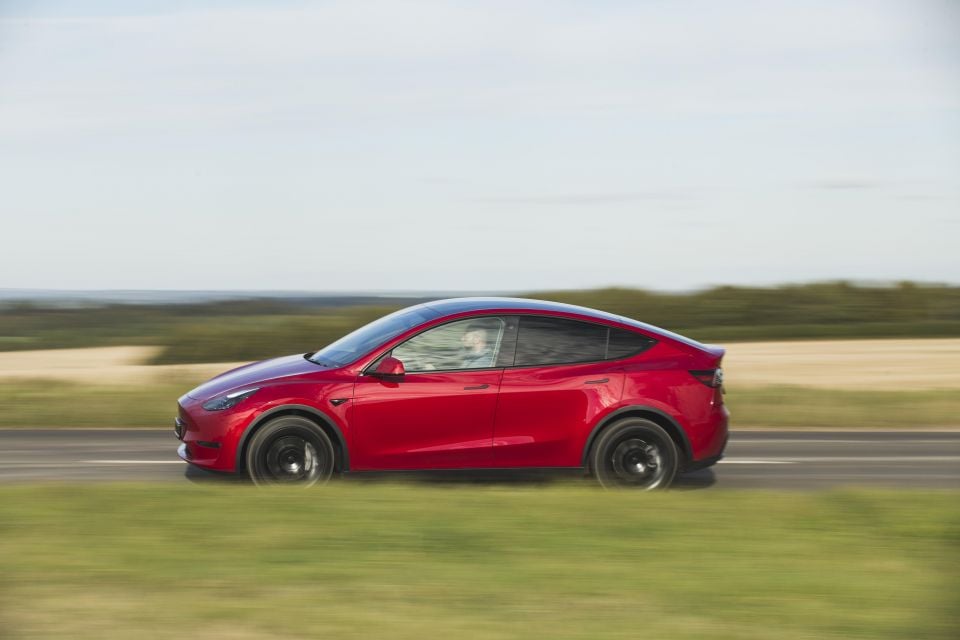
“The impact on the local water supply continues to be concern for the future of the plant,” said Deutsche Bank autos sector analysts in a research note as reported by CNBC.
“Sources indicated that the company may completely exhaust the water reserve in the region with the first stage of the plant build out, and will need additional extraction permits in order to expand its capacity any further in the future.”
“As such, Tesla will reportedly have enough supply to support the initial 500,000 volume target, but may face additional hurdles as it plans to expand each of its Gigafactories to ~1 million units of annual production.”
Australian-bound Model Y vehicles are going be built at Tesla’s Shanghai gigafactory and they were expected to go on sale in Australia in 2021.
Evaluation vehicles were reportedly shipped to Australia for certification, but deliveries have yet to begin.
Take advantage of Australia's BIGGEST new car website to find a great deal on a Tesla.
Jack Quick is an automotive journalist based in Melbourne. Jack studied journalism and photography at Deakin University in Burwood, and previously represented the university in dance nationally. In his spare time, he loves to pump Charli XCX and play a bit of Grand Theft Auto. He’s also the proud owner of a blue, manual 2020 Suzuki Jimny.
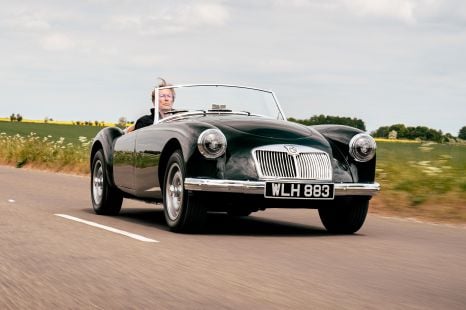
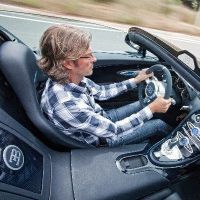
Angus MacKenzie
6 Days Ago
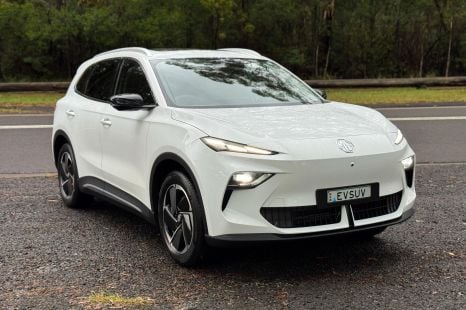

Matt Campbell
5 Days Ago
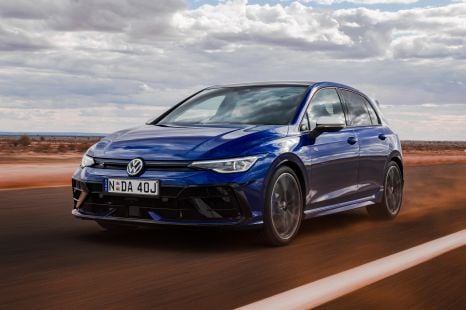

James Wong
3 Days Ago
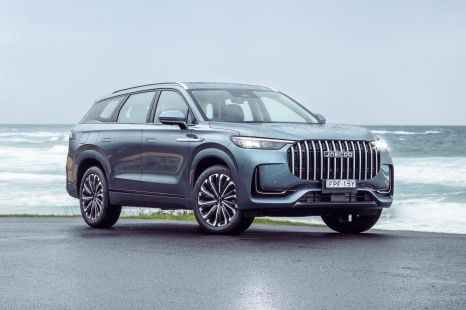

William Stopford
2 Days Ago
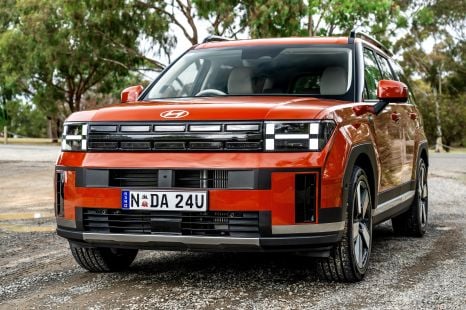

Max Davies
2 Days Ago
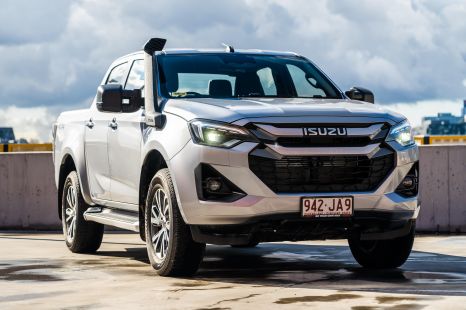

Max Davies
20 Hours Ago